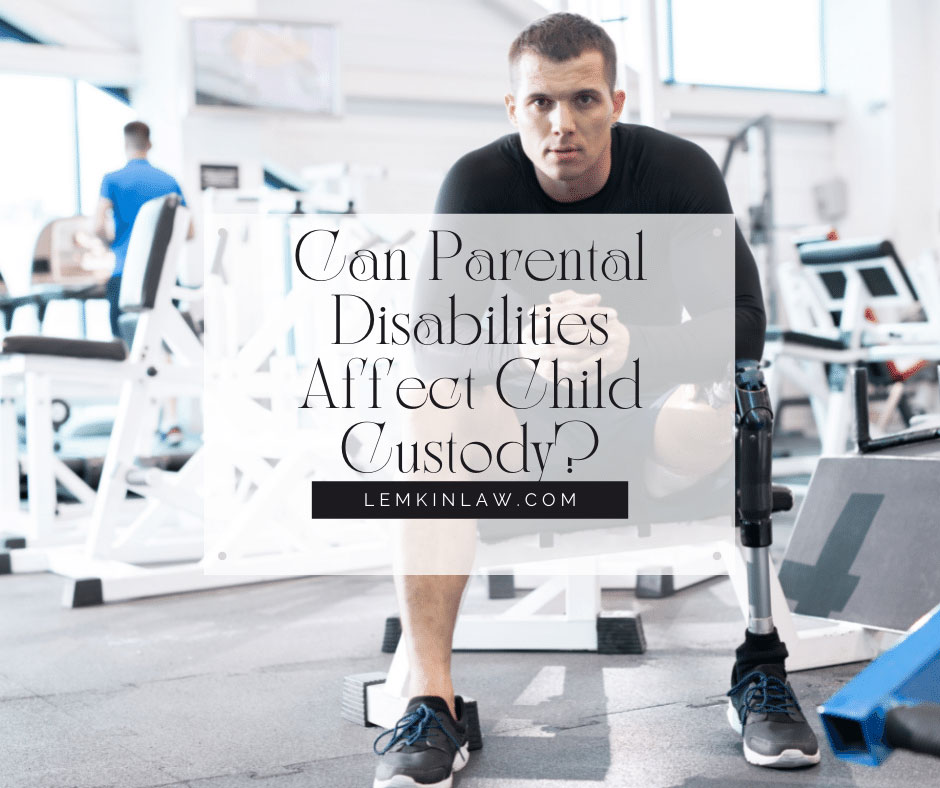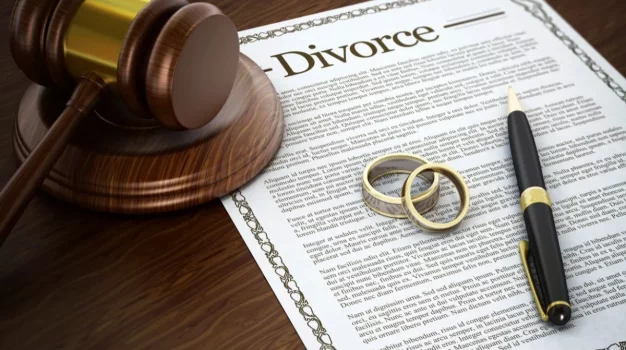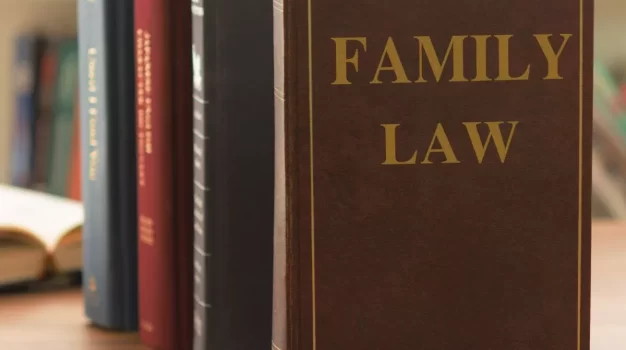Can Parental Disabilities Affect Child Custody?
Disability definitely plays a role in child custody, let’s dig into what is possible for parents with disabilities.
Regardless of your situation, if you find yourself in the middle of a divorce, consult with an Orange County divorce mediation attorney today.
Successful parenting of a child takes on many forms. While some may view the parents’ responsibilities in an actionable way, like leading the carpool, playing at the park, or roughhousing after dinner.
Others see parenting as offering emotional support in the form of being there for the children, and sharing love among the family.
While both of these ideas may be true, things can get muddled when one of the parents suffers from a disability and then gets divorced.
Many disabilities put a parent in a position where it’s not easy to attend parent-teacher conferences, make meals, or even supply emotional support. Mix that with an overwhelming stigma on people with disabilities, and you’ll see disabled parents fighting for their right to be a part of their children’s lives.
Parenting With A Disability
There’s no doubt that some disabilities can make parenting difficult. Still, many find that those with some kind of disability are actually in a better position to teach their children how to treat others right, show compassion, and live a good life.
Outside of drastic cases, an affliction doesn’t mean a parent is unable to fulfill their role as a guardian, teacher, and caretaker. The method that the parent uses, however, to deal with these tasks may take on different looks.
Unfortunately, there is a huge stigma against those who have special needs. Even more unfortunate is that this stigma can find its way into the courtroom.
How Child Custody Should Work
When a set of parents get a divorce, they have to work out some kind of custody arrangement for their children. They may choose to go with an Orange County divorce mediation attorney to help handle issues outside of court, but divorces can get messy and require the decision of a judge.
The court is going to make judgments based on the goal of keeping children safe, healthy, and happy when determining what is in the best interest of the kids. It will look at things like the relationship between the parents and children, the amount of time they spend together, etc.
Where things can go off the tracks is when courts consider the ability of each parent to care for the children.
In California, there are four general types of custody that come into play during a divorce, these are:
Physical custody – refers to where the children spend most of their time—this where they live. This kind of custody can take on many forms and can be shared.
Legal custody – deals with which parents have the ability to make major decisions on behalf of the child’s religion, minor medical procedures, and more. Parents are often granted shared custody in this area.
Sole custody – when a single parent is given physical and/or legal custody to manage alone. If one parent is unfit due to the continued use of drugs or a history of abuse, that parent may lose the right to have any kind of custody. The court may, however, still allow certain kinds of visitation.
Joint custody – can mean several things like shared legal, shared physical, or shared legal and physical custody between the two parents. This is the most common kind of custody as the court typically believes that both parents should be part of the children’s lives.
Visitation rights – are related to custody arrangements but are also very different. Visitation is the matter of letting the non-custodial parent (the one with whom the children do not live) spend time with the kids. The court can put a limitation on visitation, but visits can also include trips away from home or even overnight when appropriate.
Disabled Parents and the Court
As your Orange County divorce attorney will tell you, the court aims to focus on the best interest of the children during a divorce. Part of this process is determining the appropriate custody split for both parents.
Typically, one must prove that a parent is completely unfit for the court to completely terminate any custody or visitation rights. In theory, this should be difficult to prove, but parents who suffer from some infliction often find themselves discriminated against in court.
The court, ex-spouse, or the other lawyer may try to use the disability as a reason to immediately discredit that parent. While this is an unfair tactic to use during a divorce, it does work. That’s why it’s so critical to have an Orange County divorce attorney on your side.
Under Title II of the American With Disabilities Act, people with disabilities cannot be denied custody solely of their disabilities. While this law may make it seem like disabled parents are fully protected, it just means the court has to state another reason for denying visitation or custody.
The court may use the ability to care for the children as their main factor in granting the other parent sole custody. They may focus on other things to publicly justify their decision, but the disability definitely had a role.
Unless the court can prove that the disabled parent is truly unfit due to the abuse of alcohol, drugs, etc., the court shouldn’t jump straight to a decision. This is when having an Orange County divorce attorney on your side makes a difference. Your lawyer can not only argue your case but stand up against unfair tactics from the other side.
In the case that a court doesn’t give the disabled parent some type of custody, it’s rare that visitation rights are completely denied. At the same time, this kind of decision can happen.
If the judge has any significant concerns about visitation, they can require all visits to happen in the presence of a social worker or set other limitations.
Choose the Right Orange County Divorce Attorney
If you’ve experienced some kind of injury, medical condition, or anything else that has left you disabled, you are not alone during your divorce.
At the Law Offices of Hollie A. Lemkin, we stand up for our clients to ensure they are treated fairly and according to the law. When it comes to the ability to maintain a relationship with your children, you don’t want to leave it to chance.
For scheduling a consultation regarding your rights and options, contact our team at the Law Offices of Hollie A. Lemkin today.





